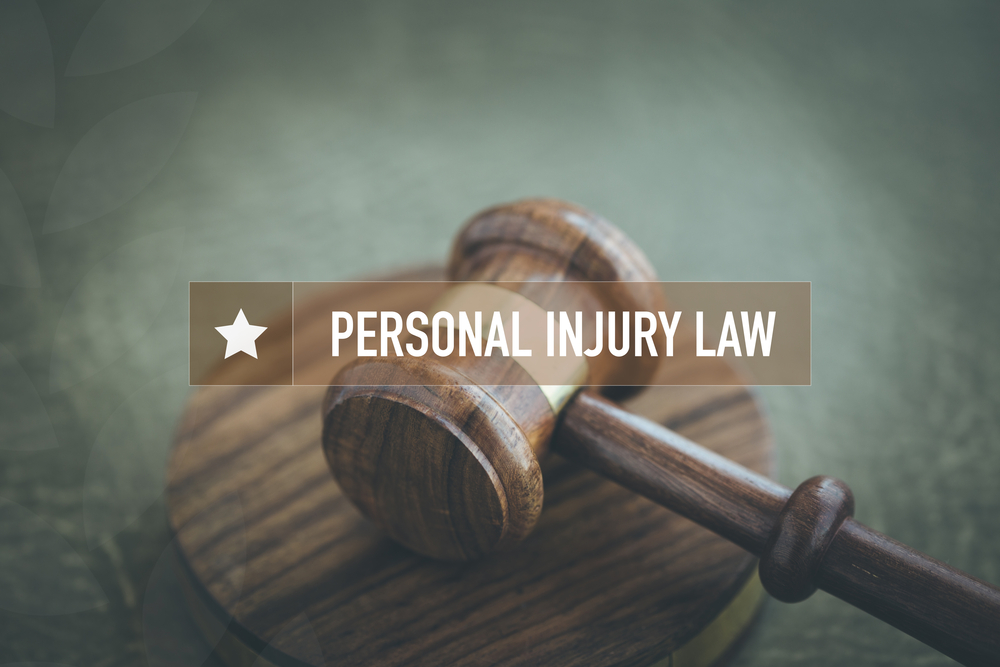When an accident occurs and you suffer an injury as a result, it can be a frustrating experience that leaves you wondering what you should do next. However, if the accident is severe enough, you may not be able to work for an extended period of time, or at all. Learning what legal options you have following an accident you were injured by can help you secure the compensation that you deserve.
What is Personal Injury Law?
Sometimes called “tort law”, personal injury legal matters refer to the event in which an injured person files a civil lawsuit against another person or an organization who they believe caused those injuries through an accident. The goal of these civil suits is to prove that the other party did indeed act in a manner that caused the accident and injuries, so that the injured party can receive a legal remedy, typically compensation, for the injuries they’ve suffered.
When Does Personal Injury Law Apply?
In most cases, there are four scenarios personal injury law comes into play for most situations:
In the Event of an Accident: While accidents are unfortunate, one person’s carelessness can cause harm to another. Car accidents slips and falls, malpractice in the medical field, and more are all forms of accidents where personal injury could apply if negligence was present.
In the Event of an Intentional Act: If another person intentionally caused the event that resulted in your injury, they can be held liable for your personal injury in some situations.
In the Event of Defamation: Should a person or organization speak defamatory statements about another, personal injury law could still apply.
In the Event of a Product that is Defective: Finally, if a company releases a defective product such as a vehicle, toy, medical device, or something else that causes harm due to being defective, there may be a personal injury case to be had.
Personal Injury Case: Who Are the Players?
As with most lawsuits, there are two opposing sides involved in the case: the plaintiff and the defendant. In a personal injury case, the plaintiff is the person who is alleging that they were injured as a result of an accident and that they are seeking some form of remediation from the court.
On the other hand, the defendant is the party, an individual or corporation in most cases, that is being accused of causing the accident which resulted in injuries the plaintiff suffered. The plaintiff, typically, has an attorney who represents them and presents evidence of their claim, while the defence also has an attorney who seeks to either erase or mitigate the charges that are being brought against the defendant.
What is the Process of a Personal Injury Case?
While most civil suits end in settlement, it’s still important to cover the timeline of a personal injury case so that you know what to expect if you are injured in an accident. Most commonly, there are three stages:
The Event
The event refers to the accident or incident in which a person received the injuries that they currently have. It is the starting point of all personal injury cases and could be anything from a car accident, someone falling into a ladder you’re standing on, a doctor making a mistake during surgery, or something else similar.
The Determination
The second stage of a personal injury case is determination. This occurs when the injured party realized that someone else may have been at fault for the accident and the injuries they suffered. It is at this point they often contact a legal office to discuss what occurred and to see whether or not a case may be there.
The Settlement or Trial
Finally, the longest part of a personal injury case, is the journey to settlement or trial. This requires gathering evidence, speaking with potential witnesses, selecting a jury if applicable, and going through the trial before either the case is dismissed, or you are awarded compensation. The majority of civil lawsuits will end in settlement, rather than going to trial, which is when both sides sit down and the defendant agrees to certain terms from the plaintiff in exchange for not going to trial.
How Much Can You Receive from a Personal Injury Case?
In most cases, the amount you receive from a person injury case will vary depending on how much fault is applied to the defendant. The judge or jury will come up with a value that seems fair for compensation, based on this amount of fault. To that end, the plaintiff will need to prove three things in order to win their case and receive maximum compensation:
Duty: You will need to prove that the defendant had a legal duty to avoid causing you harm.
Breach of Duty: You will need to prove that the defendant breached their duty and did not act in a manner that prevented harm.
Causation: You need to prove the actions of the defendant directly caused an incident that led to your injuries.
Damages: You need to prove you were injured as a result of the accident. If you can prove all of the above, a judge or jury may find that the defendant was partially or completely negligent, and they may provide you with compensation. On average, half of all plaintiffs receive about $24,000, which can be used to cover lost money due to medical expenses or being unable to work.
Contact an accredited personal injury lawyer today
There are a number of different scenarios in which a person may be eligible for compensation following an accident. It’s always best to trust a lawyer to evaluate your specific situation to determine if there is evidence that you should be awarded compensation for damages suffered as a result. Reach out to an accredited personal injury attorney in your area to review your case and see what you may be entitled to.





























